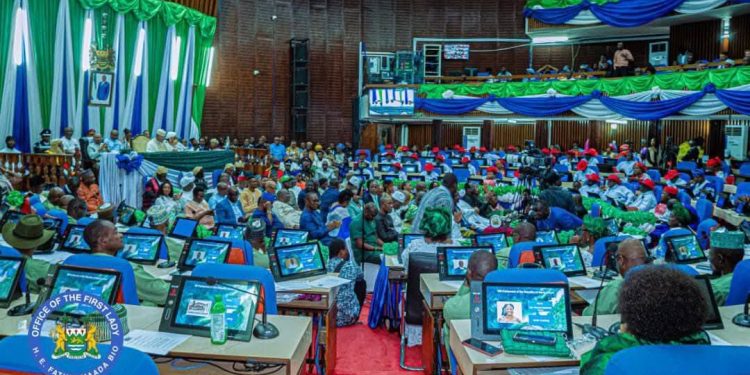By Hassan Osman Kargbo
Members of Parliament (MPs) have voiced deep frustration over the persistent neglect of Koinadugu and Falaba Districts, highlighting the poor condition of the roads, inadequate medical and educational facilities, and the lack of clean pipe-borne water in those areas.
During the debate on President Julius Maada Bio’s address to Parliament, several MPs representing the northern districts lamented what they described as years of abandonment and underdevelopment, urging the government to take immediate action to improve basic infrastructure.
While contributing to the debate on October 13, 2025, Falaba District MP Mohamed Alpha Jalloh expressed strong dissatisfaction over the government’s continued failure to address the dire conditions in the two districts.
“I bring you a great deal of disappointment, dissatisfaction and discontent from the people of Koinadugu and Falaba District. Are the people of Koinadugu and Falaba District not deserving of progress and opportunities? It displeases me to inform this noble house that the people of Koinadugu and Falaba District are feeling neglected and abandoned,” Jalloh said.
He referenced paragraph 151 of President Bio’s speech, where the President emphasized the importance of road infrastructure to national development. Jalloh, however, noted that despite repeated calls from representatives and residents, the roads linking Koinadugu and Falaba to other parts of the country remain in a deplorable condition.
The MP also pointed out the lack of access to pipe-borne water and other essential amenities, which he said continue to make life difficult for residents in those communities.
Joining the debate on October 16, 2025, Koinadugu District MP Adama Conteh commended the government for its ongoing investments in road construction projects across the country, noting that improved roads are crucial for food security and rural development. However, she expressed disappointment that Koinadugu and Falaba were not among the districts listed for road construction.
“It beats my imagination when I hear of the construction of four hundred and twenty kilometres of roads that will enable agricultural productivity, and Koinadugu and Falaba Districts are not included,” Conteh said.
She explained that Koinadugu and Falaba contribute significantly to the country’s agricultural output, producing vegetables, cow milk, rice, and other crops. Yet, the main road linking Makeni to Kabala, the key route to those areas, remains in a terrible state, which she described as a “death trap.”
Conteh urged the government to prioritize the construction of the Makeni–Kabala road, noting that improved access would help advance the “Feed Salone” agenda aimed at achieving national food security.
On education, the MP praised the Free Quality Education initiative for increasing school enrolment but raised concerns about the standard of learning facilities in rural communities. She shared her observation of children sitting on sticks and bricks in classrooms, describing it as a painful and shameful reality for a 21st-century Sierra Leone.
Parliamentarians and other citizens have long described the level of deprivation in Koinadugu and Falaba as alarming. They continue to appeal to the government to provide essential services and infrastructure to enhance the living conditions of residents in those regions.













